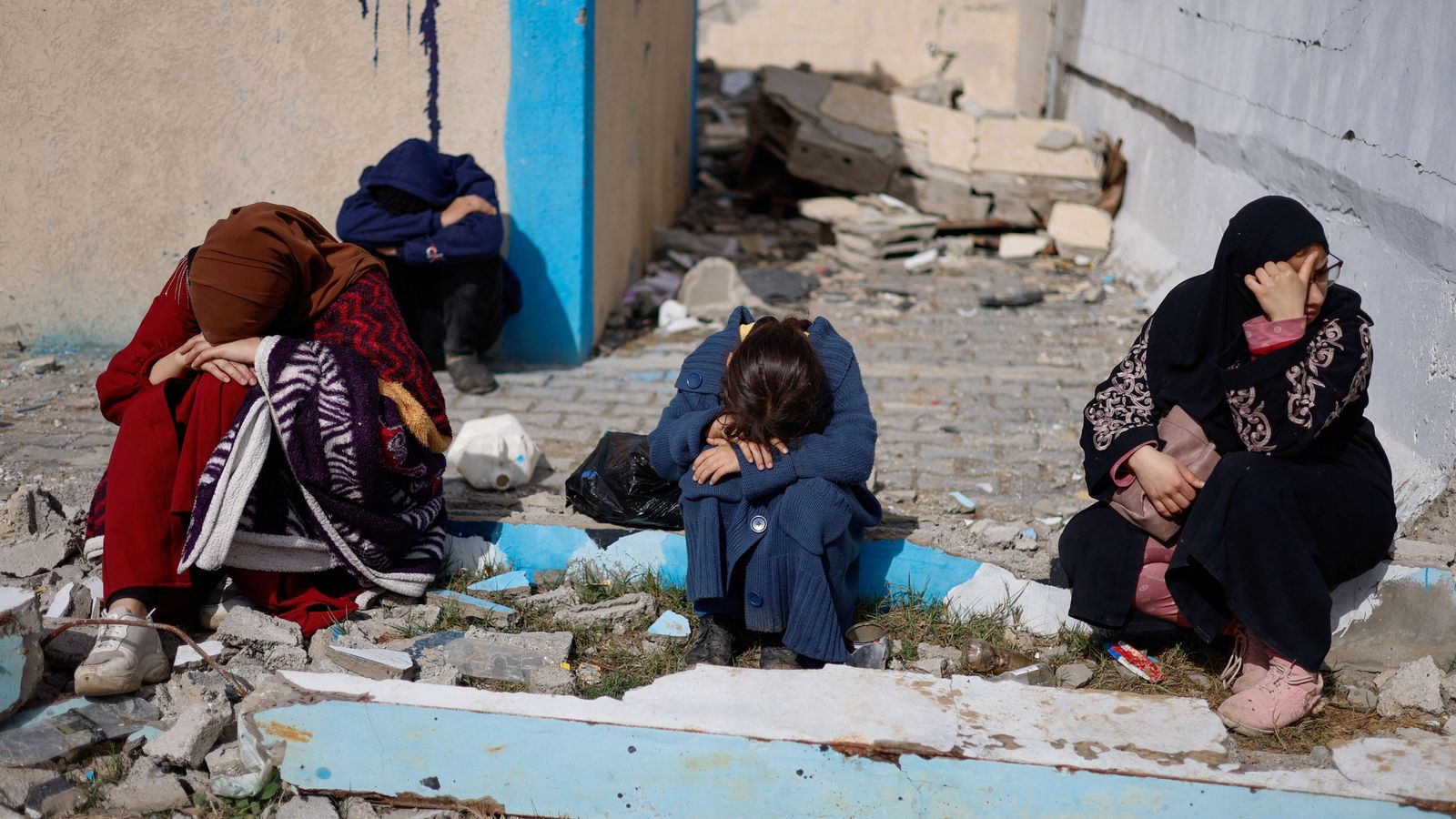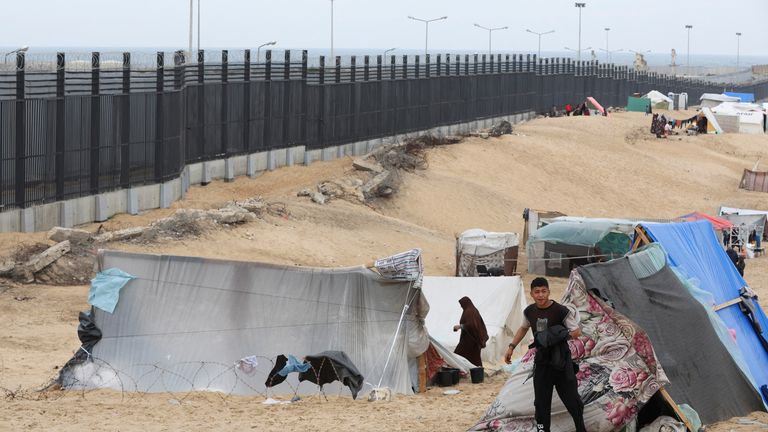Israel’s war cabinet indicates date for Rafah ground invasion


A member of Israel’s war cabinet has indicated a ground invasion of Rafah may begin around Ramadan, which is expected to start on 10 March.
Retired general Benny Gantz, part of Prime Minister Benjamin Netanyahu’s three-member war cabinet, told a conference of Jewish American leaders: “If by Ramadan our hostages are not home, the fighting will continue to the Rafah area.”
It marks the first time Israel‘s leaders have publicly discussed a timeline for a ground offensive on Rafah, where more than half the enclave’s 2.3 million people have sought refuge.
Ramadan – the Islamic holy month of fasting – has historically been a tense time in the region.
Mr Gantz’s comments come as Mr Netanyahu brushed off calls to stop the military offensive in Gaza and vowed to “finish the job”.
He also said demands by Gaza’s ruling Hamas militant group were “delusional”, as ceasefire negotiations struggle to progress.
The US, Israel’s top ally, says it still hopes to broker a ceasefire and hostage-release agreement, and envisions a wider resolution of the war.
Washington also said it will veto another draft UN resolution calling for a ceasefire, with its UN ambassador warning against measures that could jeopardise “the opportunity for an enduring resolution of hostilities”.
But Mr Netanyahu’s cabinet adopted a declaration on Sunday saying Israel “categorically rejects international edicts on a permanent arrangement with the Palestinians” and opposes any unilateral recognition of a Palestinian state.
Advertisement
The international community overwhelmingly supports an independent Palestinian state as part of a future peace agreement, but Mr Netanyahu’s government is filled with hardliners who oppose Palestinian independence.
Meanwhile, the head of the World Health Organisation (WHO) said southern Gaza’s main medical centre, Nasser Hospital in Khan Younis, “is not functional any more” after Israeli forces raided it last week.
WHO director-general Tedros Adhanom Ghebreyesus said a team was not allowed to enter the hospital on Friday or Saturday. He said about 200 patients remain, including 20 who need urgent referrals elsewhere.
But Israeli defence minister Yoav Gallant claimed at least 200 militants surrendered at the hospital. He also claimed that Hamas is defeated in Khan Younis and is largely leaderless in Gaza.
The Gaza Health Ministry said 70 medical personnel were among those arrested, along with patients, leaving 150 patients without medical care.
It said Israel refused to allow patients, including newborn babies, to be taken to other hospitals.
Click to subscribe to the Sky News Daily wherever you get your podcasts
Israeli strikes across Gaza have also continued, killing at least 18 people overnight into Sunday, according to medics and witnesses.
The United Nations’ top court is also set to open a week of hearings on the legal consequences of Israel’s occupation of Palestinian territories on Monday, with more than 50 states due to address the judges.
Palestinian Foreign Minister Riyad al-Maliki will speak first in the legal proceedings at the International Court of Justice (ICJ) in The Hague.
In 2022, the UN General Assembly asked the court for an advisory, or non-binding, opinion on the occupation.
While Israel has ignored such opinions in the past, it could pile on political pressure over its ongoing war in Gaza.
Read more from Sky News:
‘No preparation whatsoever’ for influx at Gaza’s Rafah border
‘Gaza is worst humanitarian crisis I have seen in 50 years’
The scale of Rafah’s vast tent city
The war has killed at least 28,985 Palestinians, mostly women and children, according to the Health Ministry, which does not distinguish between civilians and combatants.
On Sunday it said 127 bodies were taken to hospitals in the past 24 hours. A further 68,883 people have been injured, the health ministry said.
Around 80% of Gaza’s population has been displaced, and a quarter face starvation.
Israel’s military offensive in Gaza started after the 7 October attack by Hamas, which killed about 1,200 people, mostly civilians, and around 250 were taken hostage.
Militants still hold around 130 hostages, and a quarter of them are believed to be dead.